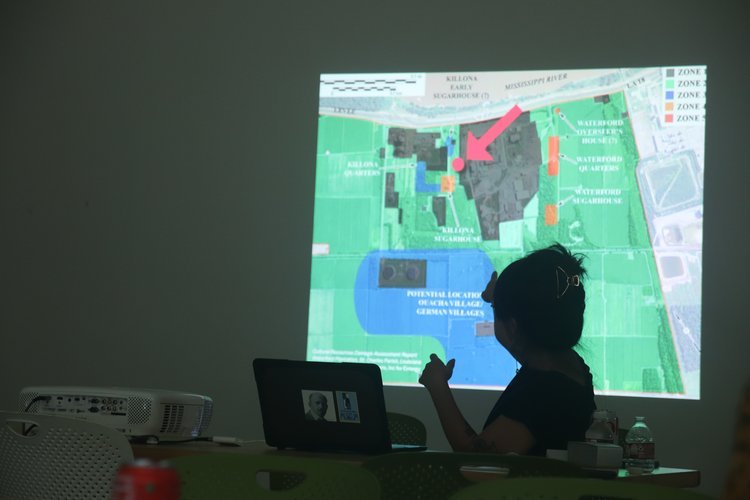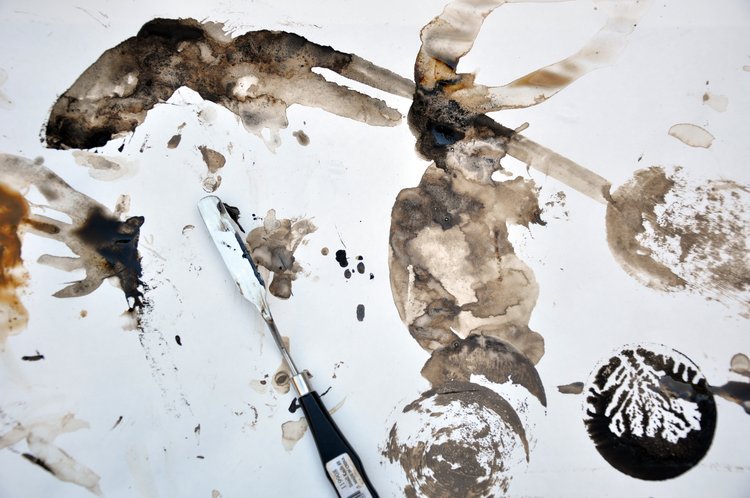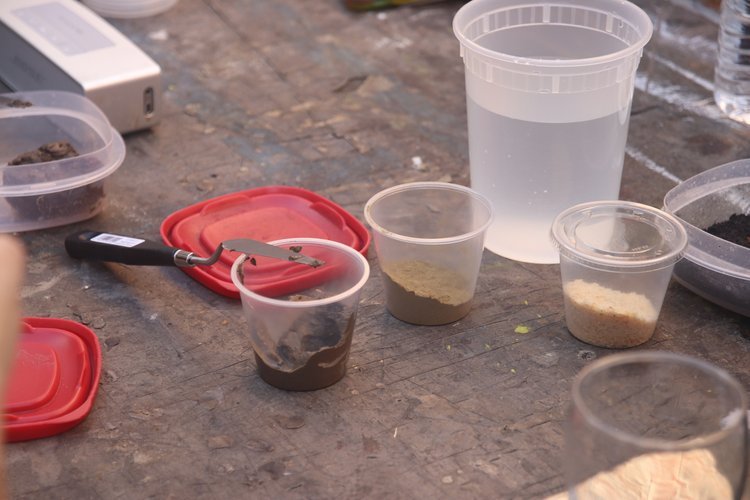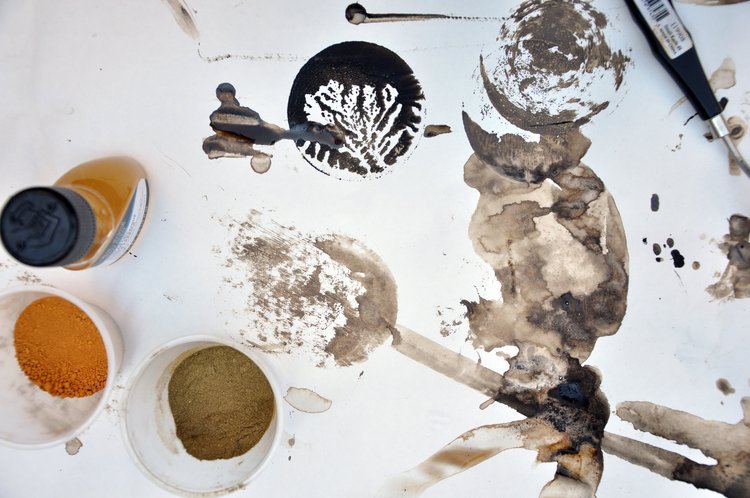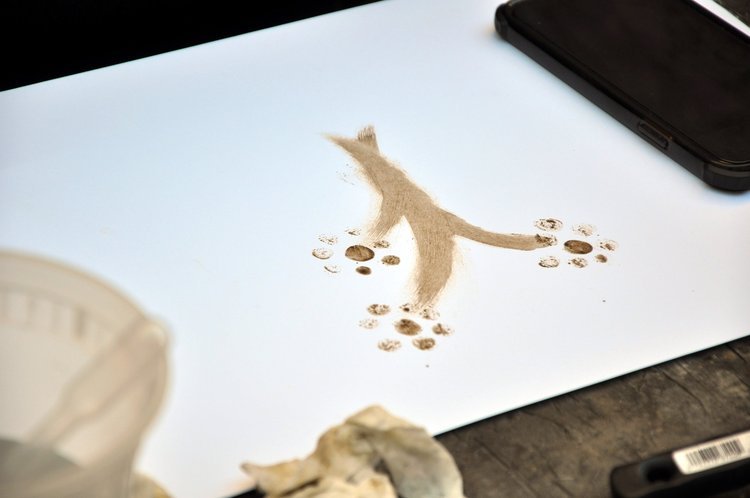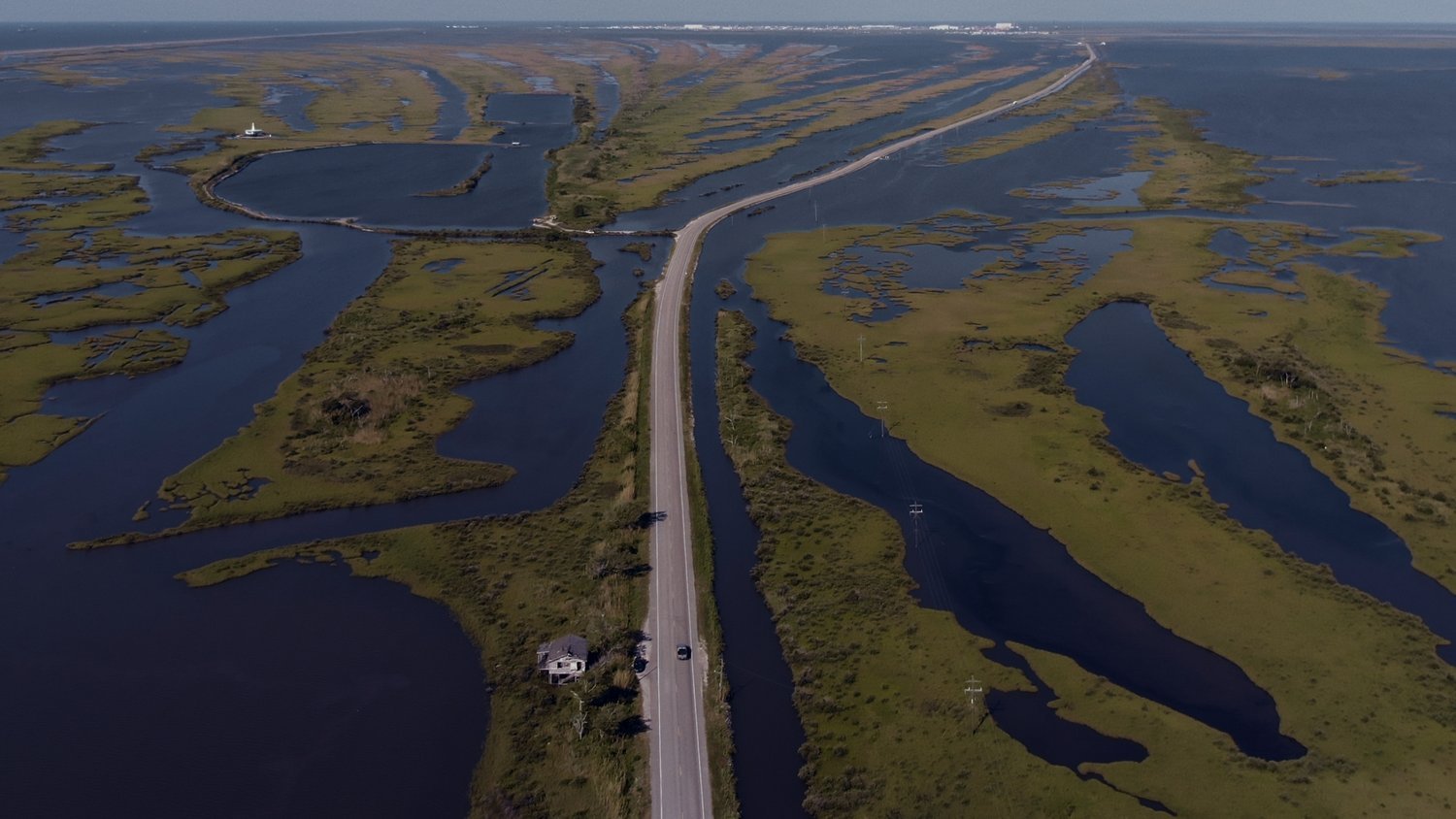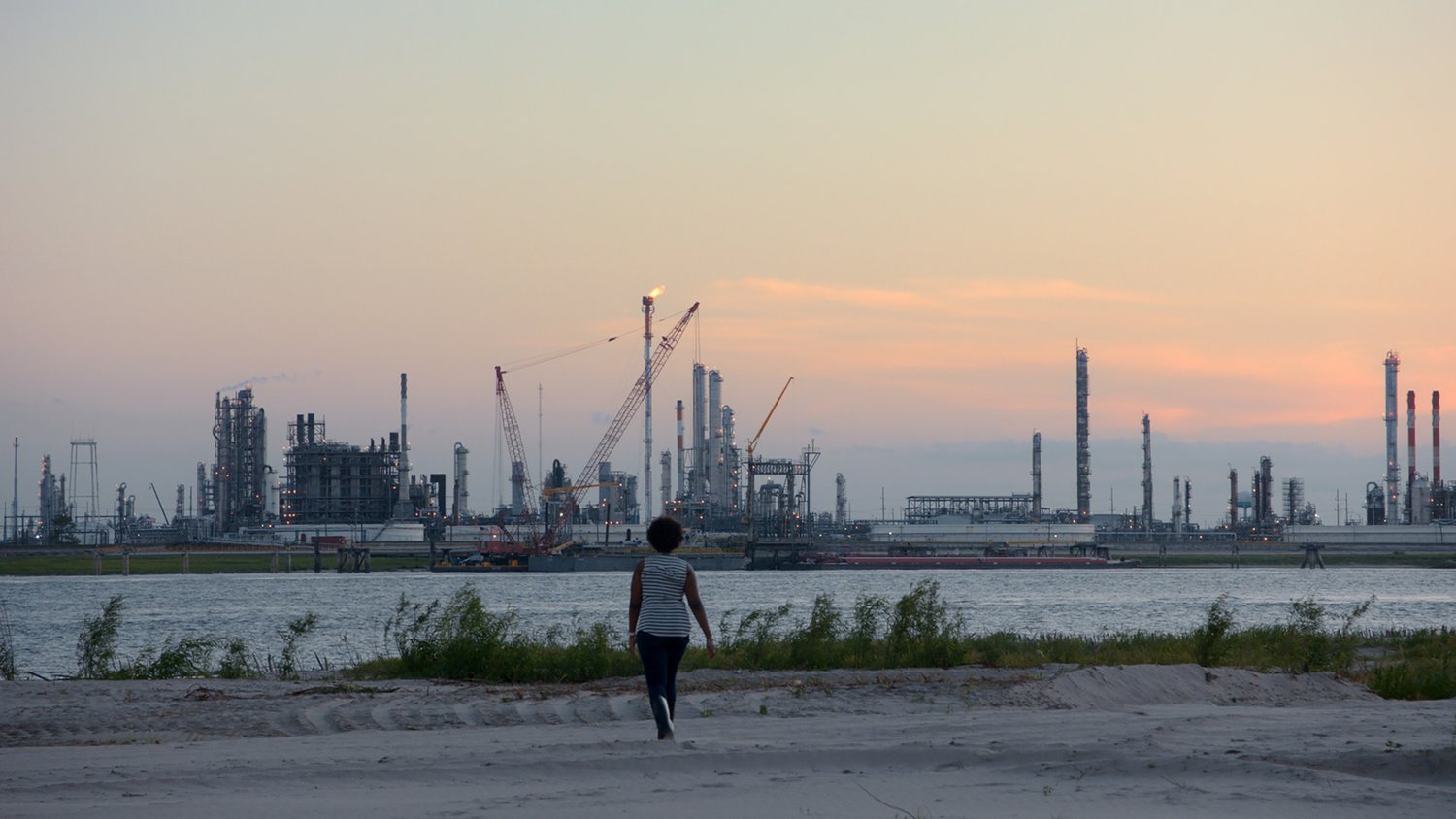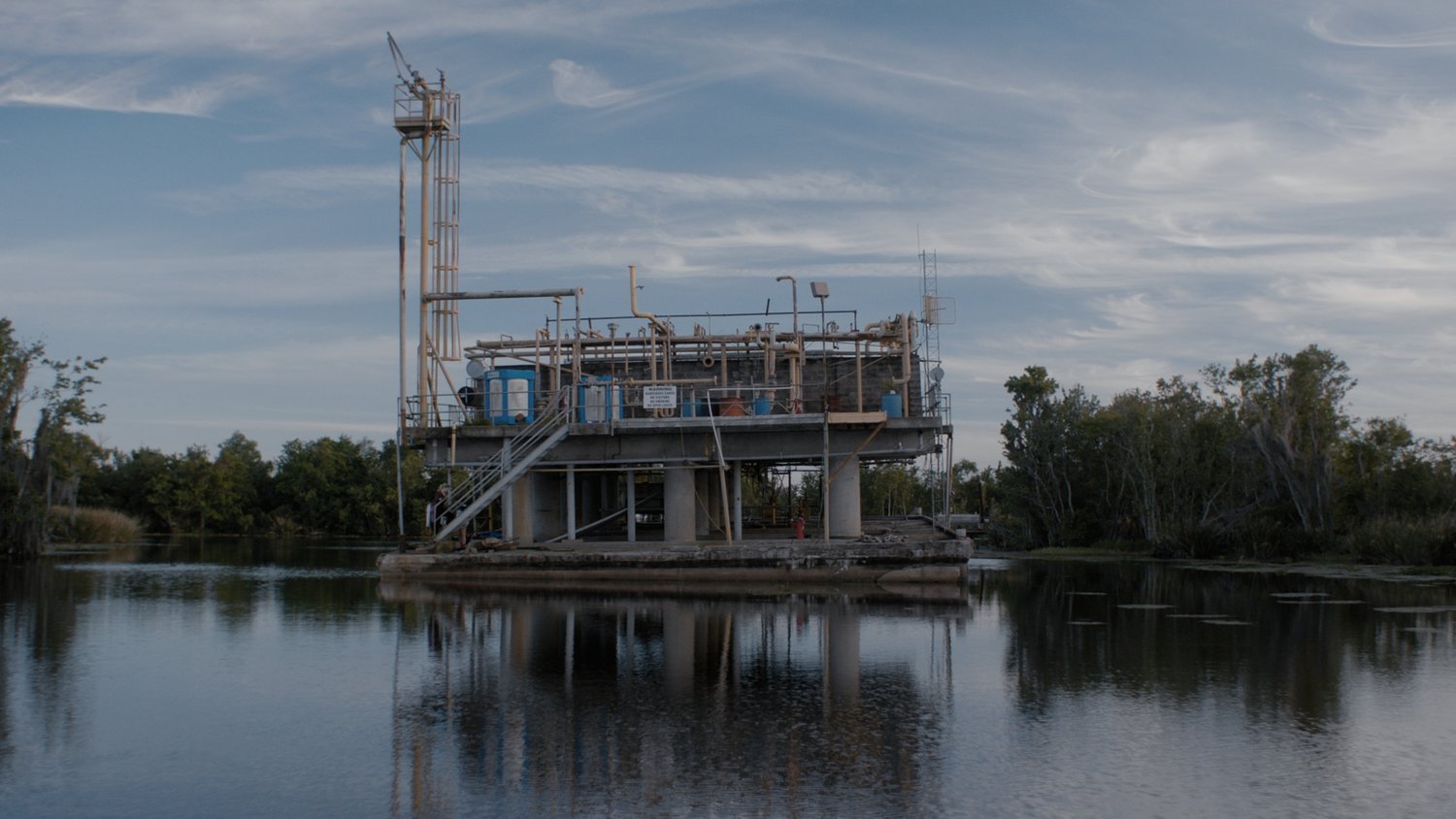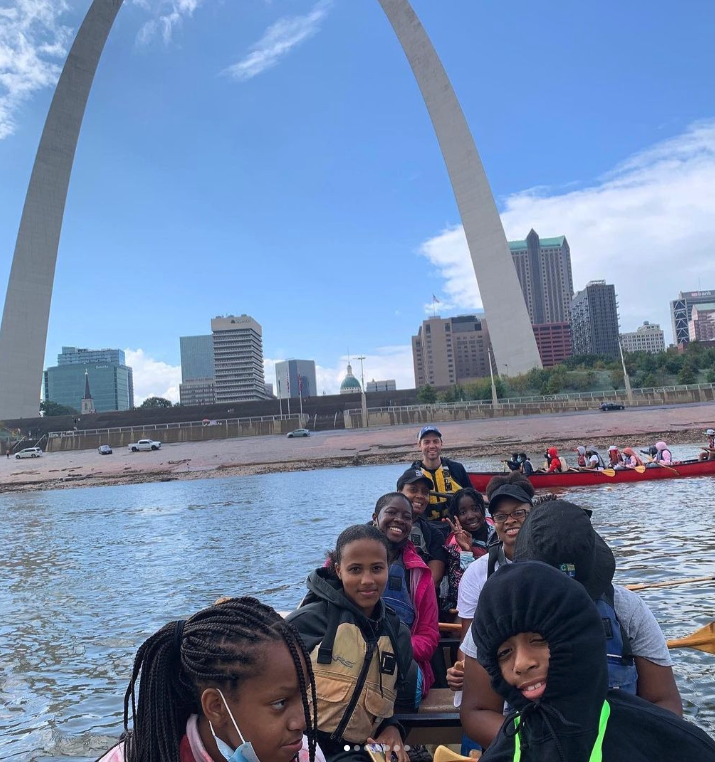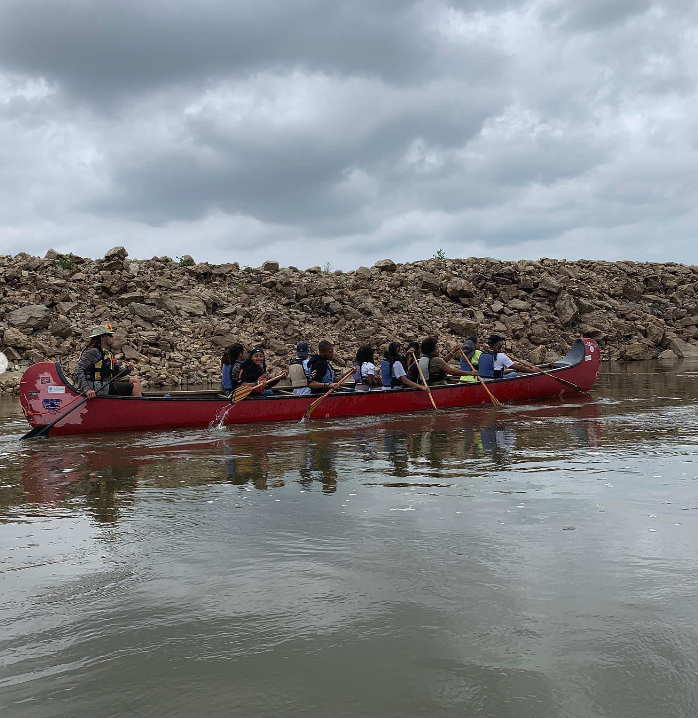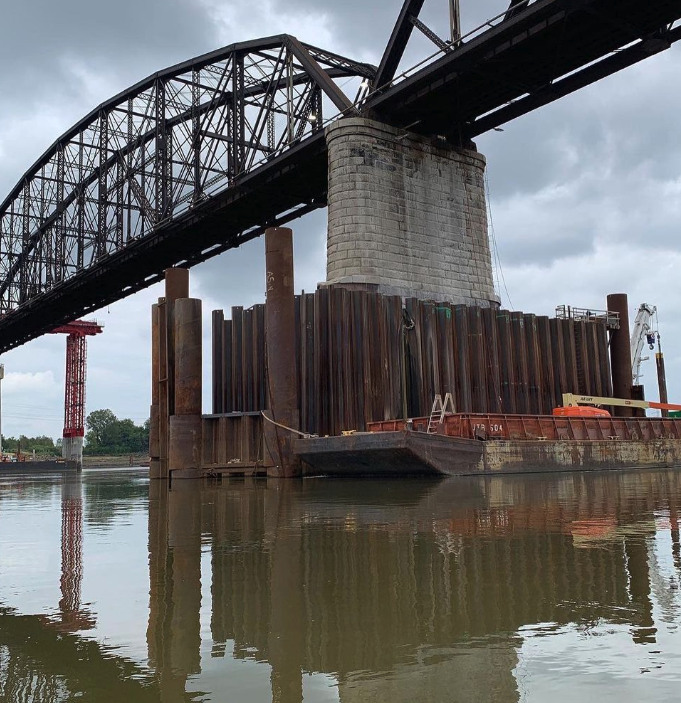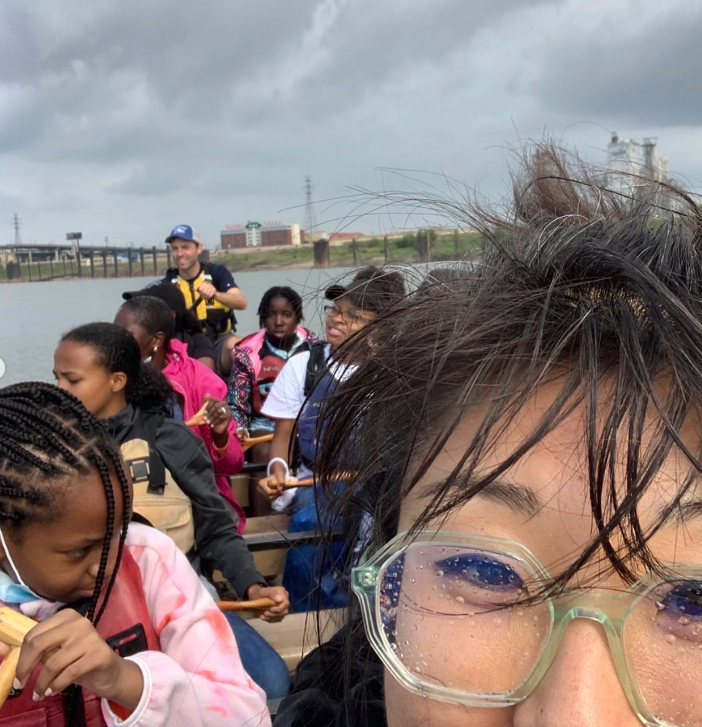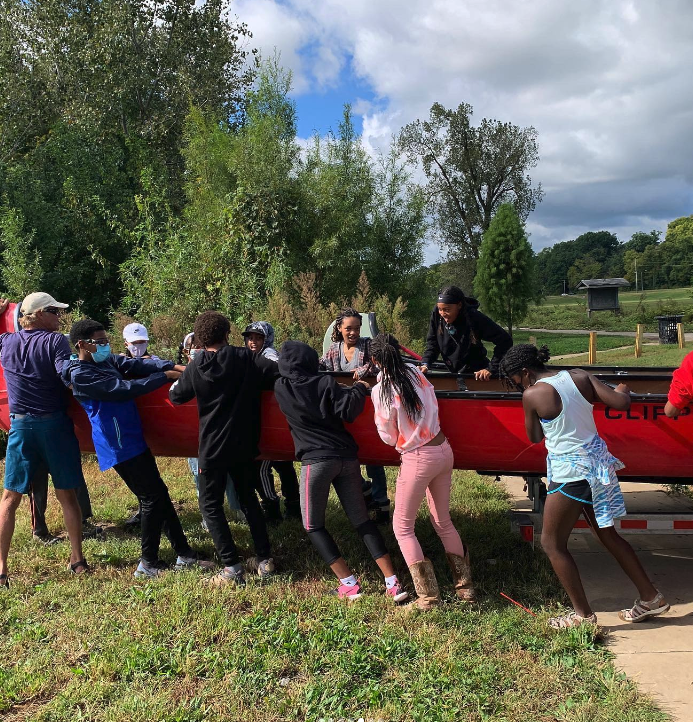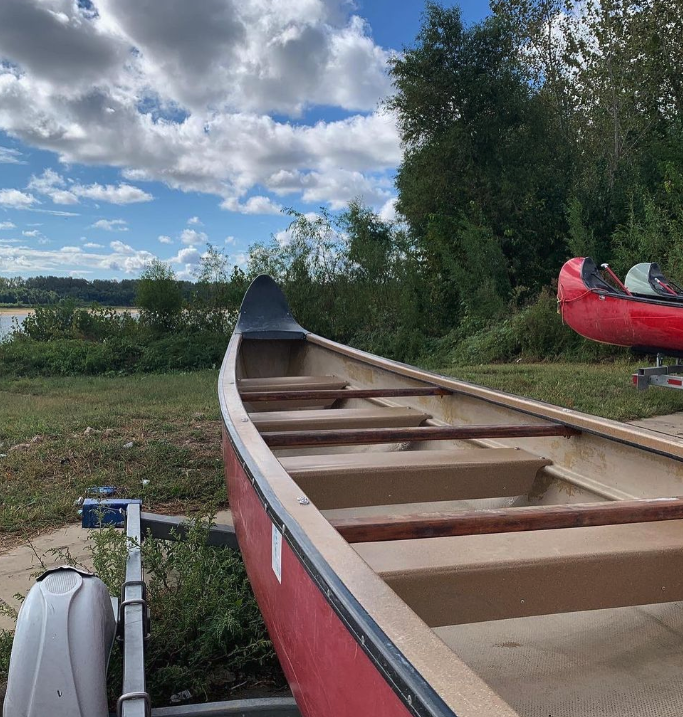
Earth Pigments Workshop
The Workshop
Participants will work together to create watercolor pigments from organic materials from research sites in south Louisiana, as well as materials from Harvard’s campus.
The workshop will begin with a short informational talk and demonstration of methods for incorporating archives and ethnography in environmental artmaking. Participants will then learn hands-on techniques for creating paints with soil and other organic matter and take home a small pigment pot created during the workshop.
As participants examine and work with the materials, they will engage in discussion about the materials themselves, as well as the histories of the peoples, lands, and bodies of water where the materials were first encountered.
This event is the second in the Swamp Capitalism Event Series convened by History Design Studio Fellow Robin McDowell.
Limited to 15 participants. Advance registration required.
Artist Statement:
My creative practice draws on years of traveling south Louisiana swamps and backroads, oil towns, salt mines, former sugar plantations, flood control structures, shipping ports, tourist attractions, prisons, and chemical refineries tucked along the banks of the Mississippi and Atchafalaya Rivers. Sites of industry and pleasure blend seamlessly atop remains of enslaved people and displaced towns founded by Black families in the years following Emancipation. Over the course of many years spent following the intertwined histories of oil, salt, and sugar in Louisiana’s sinking wetlands, I came to realize the perverse metabolism of natural resource extraction at the expense of Black lives and labor.
Studies over the course of the 20th century exhibit incredible capacities of soil, air, and water to retain chemical residues (both benign and toxic) and structural damage from environmental duress, such as heat, ice, floods, and industrial pollutants. New scholarship in the life sciences demonstrates that, conceived as a larger system of biomass, these materials metabolize energy in pathways similar to the human transmission and processing of emotion by neurotransmitters and parasympathetic nervous systems. With these studies in mind, my body of creative work offers a provocation: The molecular structures of soil and water collected from former plantation sites are evolving and restructuring themselves due to ecological, economic, racial, and psychological violence and theft enacted upon the environment by European settlers, plantation owners, and corporations. These practices range from soil exhaustion by mono-cropping, erosion from deforestation and engineering projects, and microbiological reconfiguration from the psychic energies of terror, pain, hope, and pleasure. As the pigments crystallize, oxidize, melt, dissipate, and congeal over time, visual and tactile stories emerge through the rendering of new creative and interpretive possibilities from materials themselves.
The Swamp Capitalism Event Series brings together artists, teachers, activists, filmmakers, and academics from New Orleans, Cambridge, and beyond.
Swamp Capitalism: The Roots of Environmental Racism, an interdisciplinary project of History Design Studio Fellow Dr. Robin McDowell, traces racial, ecological, and economic encounters between African descended peoples, petroleum, sugar, and salt in Louisiana swamps on a geologic time scale. The programming brings this research to life through artmaking, documentary film, and intergenerational dialogues.

HOLLOW TREE Screening and Q&A with Director, Producer, and Protagonists
Join us for the Boston Premiere of Hollow Tree, hosted by History Design Studio in partnership with the Harvard Graduate School of Education. The screening will be followed by a conversation with Director Kira Akerman, Producer Monique Walton, and the 3 protagonists.
Moderated by Walter Johnson with an Introduction by Vincent Brown.
This event is the first in the Swamp Capitalism Event Series convened by History Design Studio Fellow Robin McDowell.
Free and open to the public. Advance tickets highly recommended. See the full event listing HERE
About the Film
Hollow Tree follows three teenagers coming of age in their sinking homeland of Louisiana. For the first time, they notice the Mississippi River’s engineering, stumps of cypress trees, and billowing smokestacks. Their different perspectives — as Indigenous, white, and Angolan young women — shape their story of the climate crisis.
The 73-minute award-winning documentary, directed by Kira Akerman and produced by Monique Walton and Chachi Hauser, invites three young women, who did not previously know each other, to learn with the director, filmmaking team, and their respective communities. Mekenzie Fanguy (Houma, Louisiana) was born on coastal bayous and is a member of the United Houma Nation; Annabelle Pavy (Lafayette, Louisiana) is from a mostly white community, where climate change is largely viewed as a myth; and Tanielma DaCosta (Baton Rouge, Louisiana) immigrated from Angola, Africa when she was 6. They travel to different sites along the Mississippi River, where they engage in dialogue with engineers, activists, and Indigenous leaders. As these young women notice their surroundings, they begin to imagine Louisiana's past — its history of slavery, Indigenous dispossession, and colonization — and, by extension, Louisiana's future. The one that they will experience and help to shape.
The Swamp Capitalism Event Series brings together artists, teachers, activists, filmmakers, and academics from New Orleans, Cambridge, and beyond.
Swamp Capitalism: The Roots of Environmental Racism, an interdisciplinary project of History Design Studio Fellow Dr. Robin McDowell, traces racial, ecological, and economic encounters between African descended peoples, petroleum, sugar, and salt in Louisiana swamps on a geologic time scale. The programming brings this research to life through artmaking, documentary film, and intergenerational dialogues.



Virtual Launch Event: you are here: the journal of creative geography 2023 Issue: counter/cartographies
you are here: the journal of creative geography is published by graduate students in the School of Geography, Development & Environment at the University of Arizona. The journal, founded in 1998, is an annual publication that seeks to explore geographic themes through articles, fiction, poetry, essays, maps, photography, and other art forms.
For us, creative geographies are critical engagements of/with landscape, space, place, environment, and other geographic themes by way of artistic expression and practice. The scope and methodological directions of creative geographies are broad, experimental, and ever expanding. In this way, you are here sees creative geographies as an amorphous and transdisciplinary space. As editors, we are particularly interested in how creative practices and geographic imaginations intersect with critical knowledge traditions and locations on the “margins” of dominant geographic thought, knowledge, representation, and practice. These intersectional and in-between sites are rich with insight, discovery, transformation, critical perspectives, and new ways of thinking and knowing. Our journal aims to provide a platform for these conversations and subsequently expand the boundaries of geography from the view of its margins.
The editors of the 2023 issue, counter/cartographies, are Cassidy Schoenfelder (Oglala Lakota) and Raven Moffett.

Wesleyan University Center for the Humanities Lecture Series – “A Vagrant and Fugitive Animal:” Race, Ecology, and The Origins of Louisiana Mineral Law
“A Vagrant and Fugitive Animal:” Race, Ecology, and The Origins of Louisiana Mineral Law
This talk draws on court cases from the 18th, 19th, and 20th centuries to elucidate how legal classifications of oil and salt co-evolved with contested definitions of animals, minerals, and enslaved African and African American people in Louisiana. Jurisprudence related to both persons, commodities, and animals will be examined in detail, beginning in 1937 with a Louisiana Supreme Court posthumous ruling over the property of an enslaved woman; dealings of a Confederate colonel and chemist in 1870; and the testimony of an enslaved hunter in 1764. What can early Louisiana mineral law reveal about racialized wealth accumulation, the digestion of the environment itself, and notions of Black personhood over the course of the past three centuries? What are the implications for today’s struggles for racial and environmental justice?
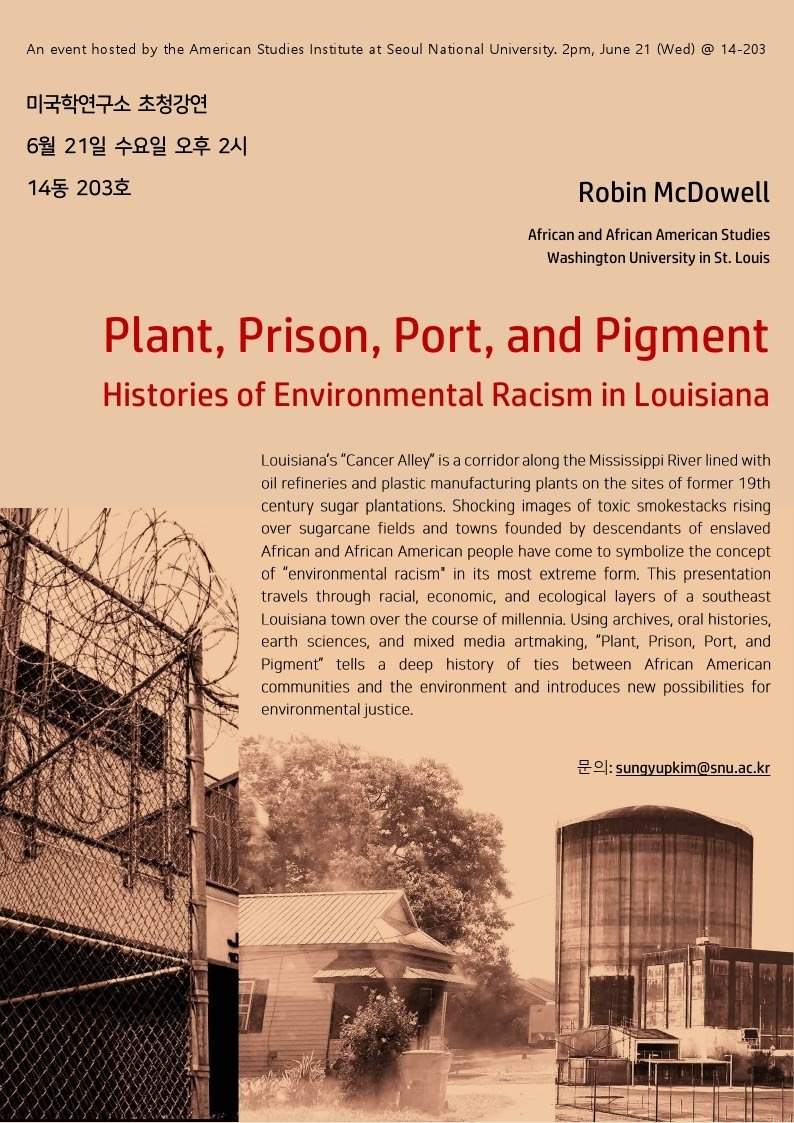
Plant, Prison, Port, and Pigment: Histories of Environmental Racism in Louisiana
Hosted by the American Studies Institute at Seoul National University
Building 14, Room 203

"She Is Clean and Genial:" The Disembodied Archive of Korean Adoptees
Student and faculty lunch and discussion


Living Earth Collaborative Spring Seminar Series
Plant, Prison, Port, and Pigment: Histories of Environmental Racism in Southeast Louisiana
Watch the livestream here: https://www.youtube.com/watch?v=8x3TTHBa4u4&feature=youtu.be
More information about the Seminar Series: https://livingearthcollaborative.wustl.edu/seminar-series/
About The Living Earth Collaborative
There is nothing more important at this moment in time than the ability to sustain life on our planet.
The study of biodiversity provides a critical window into the ecosystems and environments that support all living organisms. What we can learn through the study of biodiversity may ultimately be the key to continuation of life on earth. The missions of the collaborative are detailed below:
The center celebrates the diversity of living organisms and seeks to promote further understanding of the ways humans can help to preserve the varied natural environments that allow plants, animals and microbes to survive and thrive.
The center exists as a collaborative hub that facilitates interdisciplinary research among plant and animal biologists, and scholars across a wide range of fields.
The center aims to bring together the world’s top minds in the field of biodiversity in an international collaborative that transcends geographic and political boundaries to address the most pressing issues facing humankind – the ability to sustain life on earth.

Keynote Address: The 7th Annual Global Souths Conference
The 7th Annual Global Souths Conference
Conference Theme: "Face to Place"
We feel is especially important because people are, once again, gathering face to face following years of isolation. “Face to Place” emphasizes the building and rebuilding of connections and communities collectively, spatially, and environmentally. As communities begin interacting face-to-face again, physical place and bodies take on greater importance than has been the case the last few years. That place-based and corporeal element of life requires adapting to the return of in-person events, classes, and other engagements. As such, rebuilding communities in the wake of COVID-based isolation is integral to current experience.
Global Souths is a three-day interdisciplinary conference that aims to explore the connection between the southern U.S. and the Global Souths. The South is more than a place: it is a point of connection, a nexus of ideas exceeding geographical and ideological boundaries. As an interdisciplinary conference, we are open to all subject areas, especially the humanities, the arts, history, and social sciences.
More information about the conference here.

The Funders Network Conference: TFN At The Movies Post-Screening Panel
TFN's Annual Conference: Ignite Action will feature a special screening of the documentary film Hollow Tree, which follows three teenagers coming of age in their sinking homeland of Louisiana. For the first time, they notice the Mississippi River’s engineering, stumps of cypress trees and billowing smokestacks.
Their different perspectives — as Indigenous, white, and Angolan young women — shape their story of the climate crisis.
Join us to watch this timely, thought-provoking documentary as well as Q&A with those involved in the making of the film — along with plenty of movie-friendly treats and beverages.
Watch the Hollow Tree trailer here!



“Witnessing Lands, Witnessing Possession,” Williams College Department of Geosciences and Africana Studies Seminar Series
Joint Seminar with Dr. Robin McDowell, University of Washington, St. Louis, Dr. Priscilla McCutcheon, University of Kentucky and Dr. Brittany Meché, Williams College and Dr. Allison Guess, Williams College
The panel discussion, titled “Witnessing Lands, Witnessing Possession,” will include the four scholars listed. The panelists will not offer prepared remarks, but will engage in conversation on a range of topics, including colonialism, militarism, food sovereignty, and environmental justice movements.

INHABITATION / Exhibit and Residency
INHABITATION: The title refers to a concept that theorist Malcolm Ferdinand writes about in his book Decolonial Ecology, and describes how the participants of this exhibit are attempting to move away from colonial inhabitation wherein land and people are seen as disposable resources. The exhibit showcases a caring engagement with the material byproducts of extraction— such as archival film, chemical pigments, plastic, and expanded polystyrene foam—and invites passerbys to relate and re-imagine our relationships to the built environment, and in turn, one another. Throughout the eight week residency, the exhibit will shift as pieces are worked on, and additional artists contribute.
About the Artists
Kira Akerman is an educator and documentary filmmaker, and her forthcoming film, Hollow Tree, is about three young women coming of age in the climate crisis. Her installation derives from the film and alludes to 18th and 19th century colonial projects that resulted in manipulation of Louisiana's landscape. Throughout the course of her residency at the Small Center, other participants featured in Hollow Tree will contribute to the exhibition and workshops. Dr. Robin McDowell is a featured expert in the film and will exhibit her mixed media artworks that envision Black history as a chemical and geological churning. It is a resistant reading of the reports and travelogs of white scientists and a subversion of historically rooted horrors of numeracy. Using soil, clay, silt, rock salt, and carbon byproducts from sites in south Louisiana, these artworks reclaim stories trapped within extracted minerals themselves. Annabelle Pavvy, one of the protagonists in the film, will exhibit woodcuts of an extracted cypress tree.
Flora Cabili is an educator and interdisciplinary artist who explores storytelling through themes of origin, assembly, and dislocation. In DEPARTURE, Flora’s solo show last April, she showcased work with found materials. Notably, found styrofoam, or more accurately, Extracted Polystyrene foam. Her work to understand these materials and how to shape them in order to reconsider their nature, is Flora’s entry point in conceptualizing the impact of oil extraction in Louisiana. These materials are toxic and disposable. The sheer act of manipulating them can cause toxic fumes we have to protect ourselves from. This immersive installation will showcase recycled materials and mixed media works that allow us to examine the materiality of our relationship with petroleum byproducts. By adapting, and manipulating these materials without transforming them how can we reconsider their nature and the manipulation of nature? During the course of the DEPART-MENT Fall residency, she along with fellow community members will hold workshops to engage folks across generations in collective learning and artmaking.

Social Justice at ASALH, Virtual Book Panel, "The Bonds of Inequality"
Featured Author: Destin Jenkins, Associate Professor of History, Stanford University
Featured Book: The Bonds of Inequality: Debt and The Making of the American City
Moderator: Jarvis Givens, Assistant Professor, Harvard Graduate School of Education
Panelists:
Charisse Burden-Stelly, Associate Professor of African American Studies at Wayne State University.
Kyle Mays, Associate Professor of African American Studies, American Indian Studies, and History, UCLA.
Marlous van Waijenburg, Assistant Professor in the Business, Government, and International Economy Unit, Harvard Business School.
Robin McDowell, Assistant Professor of African and African American Studies, Washington University in St. Louis.

The Climate Crisis: Early Americanists Respond
It all begins with an idea. Maybe you want to launch a business. Maybe you want to turn a hobby into something more. Or maybe you have a creative project to share with the world. Whatever it is, the way you tell your story online can make all the difference.
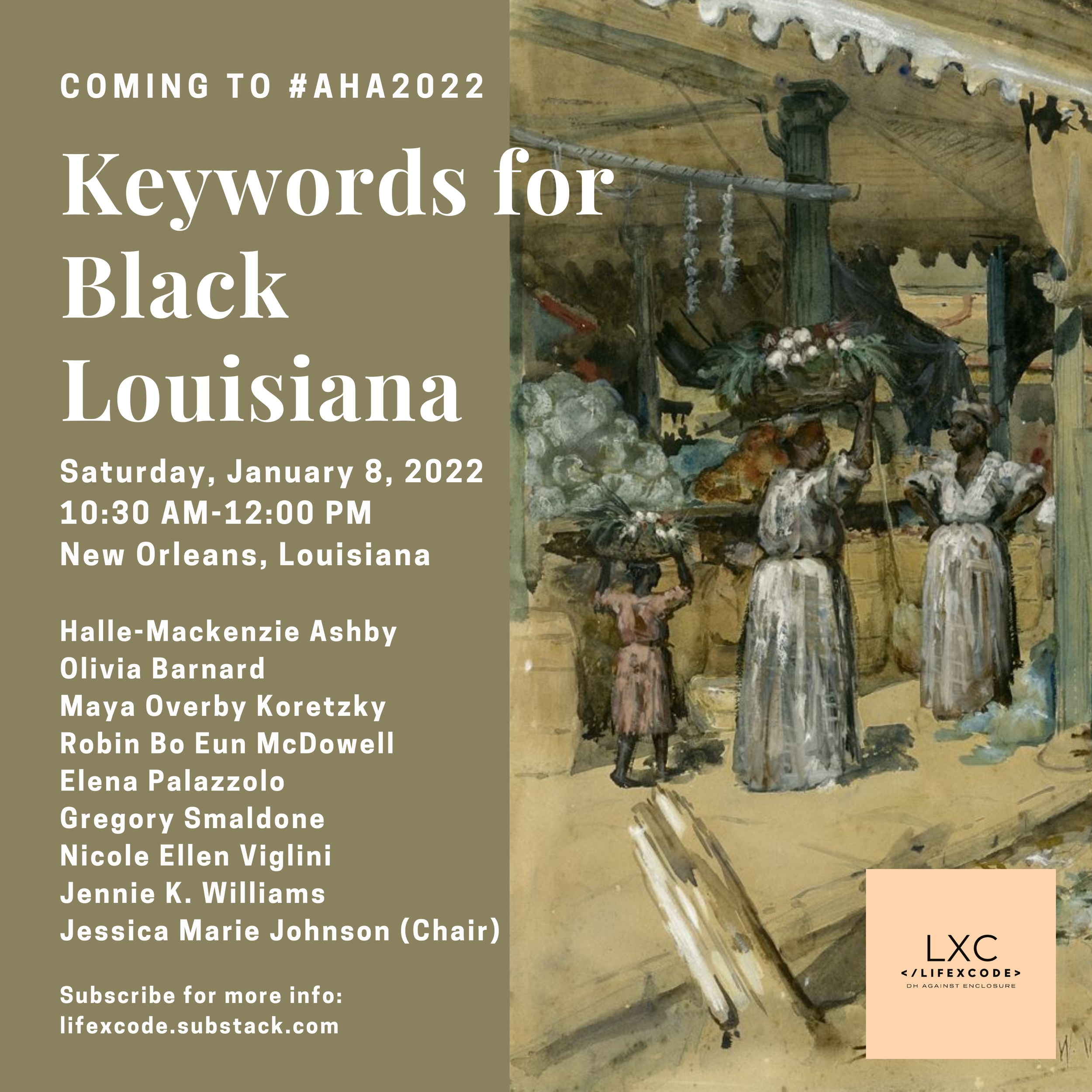
Keywords for Black Louisiana: Digital Histories of the Gulf Coast
“Keywords for Black Louisiana: Digital Histories of the Gulf Coast”
American Historical Association Annual Meeting, New Orleans, LA.
Chair: Jessica Marie Johnson, Johns Hopkins University
Moderator: Christina Thomas, Johns Hopkins University
This lightning round session will bring together innovative young scholars using digital tools, theories, and methods to create portals into the history of Black people in Louisiana.
Papers:
Telling the Story of Marronage in Louisiana
Halle-Mackenzie Ashby, Johns Hopkins University
John Blassingame's Historical Networks
Olivia Barnard, Johns Hopkins University
Charity Hospital and Black Space in New Orleans
Maya Overby Koretzky, Johns Hopkins University
Blassingame’s Visual Archive as a History of Louisiana
Robin Bo Eun McDowell, Harvard University
Keywords and Editing Louisiana Colonial Documents
Elena Palazzolo, Johns Hopkins University
Tracking the Untrackable: Using Digital Tools to Study Maroons’ Flight to Freedom
Gregory Smaldone, Johns Hopkins University
Mapping Histories of Marronage
Nicole Ellen Viglini, University of California, Berkeley
Domestic Slave Trade to Louisiana: The Inward Manifest Database
Jennie K. Williams, Johns Hopkins University
Session Abstract
Doing digital history and making history accessible to the public has never been more important. This is especially true for the study, dissemination and teaching of African American, African diasporic, and African histories of the United States. This session, in lightning round format (5-7 minutes each) will bring together innovative young scholars using digital tools, theories, and methods to create portals into the history of Black people in Louisiana. Ranging from studies using the Louisiana Colonial Documents Digitization Project to working with corpus of runaway slave ads to explore the research praxis of John Blassingame and other Black historians of Gulf Coast Louisiana life and culture, this highly visual panel will share insights gained and pitfalls surmounted when studying the complex, multi-empire, centuries long history of the diasporic and archipelagic people of African descent of the Gulf Coast. Digital humanists, K-12 teachers, artists, activists and cultural practitioners welcome for a robust conversation about what and how to do public, digital histories of black life in the region.

Researching Black New Orleans
It all begins with an idea. Maybe you want to launch a business. Maybe you want to turn a hobby into something more. Or maybe you have a creative project to share with the world. Whatever it is, the way you tell your story online can make all the difference.
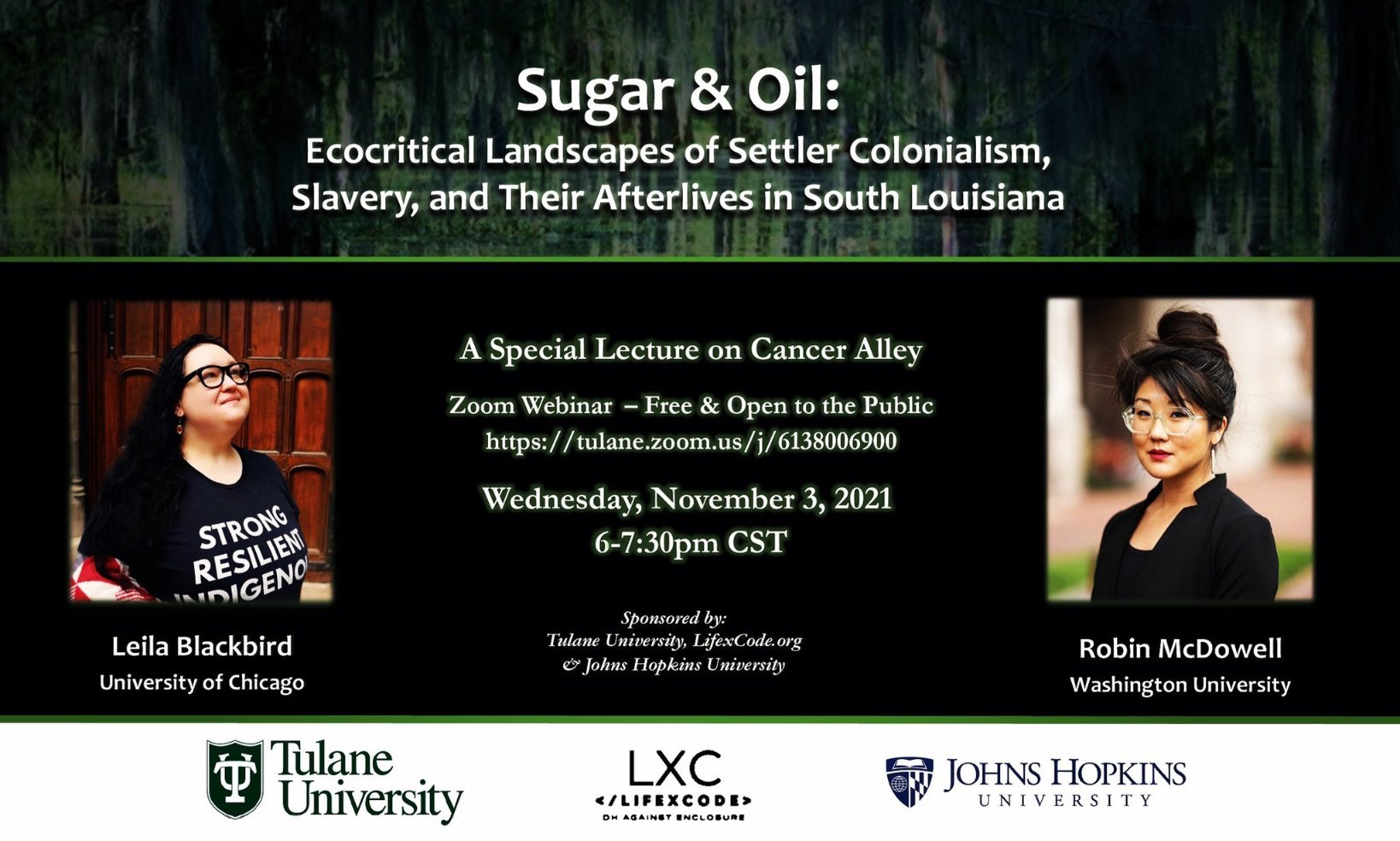
Sugar & Oil: Ecocritical Landscapes of Settler Colonialism, Slavery, and Their Afterlives in South Louisiana
Join LifexCode members Robin McDowell and Leila Blackbird for a workshop on decolonial climate justice on the Gulf Coast
Hosted by Keywords for Black Louisiana (LifexCode) and Tulane University
Virtual Lecture, November 3, 6-7:30 PM CST

Float to Freedom Canoe Trip
A field trip, discussion, and short lecture with 7th and 8th Graders in Jack & Jill St. Louis. The group paddled 10-person canoes from a launch point in North St. Louis downriver to the Gateway Arch, stopping for lunch on an island, and learning more about the history of enslavement and resistance along the Mississippi River.
Topics included:
The Fugitive Slave Acts
Missouri Territory’s “Once Free, Always Free” laws
Freedom Suits brought by enslaved people in St. Louis
Meachum Crossing and Mary Meachum

Militarizing Rivers
The UIC Freshwater Lab hosts “Militarizing Rivers,” a digital event on Thursday, April 6pm CST.
As part of the BackwardRiver project, team members Kathleen Blackburn and Citlalli Trujillo talk water, oil and how water bodies have been straightened and subdued by armed forces with eco-feminist Banu Subramaniam; river policy expert Jeremy Cherson; and historian Robin McDowell.
Why do we call a river, a waterbody known for turns and bends, a pipeline? We think of rivers coursing in a natural path, but pipelines direct flows according to human will. The Chicago River is only one example of how a waterway can be harnessed, straightened into a canal and pressed into the service of conveying coal, oil and petroleum coke. Join our conversation about engineered waterways and the crumbling infrastructure that transforms rivers into pipelines under the auspices of the Army Corps of Engineers. We will ask who benefits from the river-turned-pipeline and who bears the burden. As we look into what flows within the pipelines, we will consider how a militarized river and “invasive species” could be reimagined as public goods.
This panel is the second in the 2021 Backward River series. “The Backward River” is a digital storytelling project about the Chicago River. The series extends the conversation by lending a voice to the river and amplifying the response by surrounding communities. Watch the first event with Gen Z Environmental Justice Leaders on Facebook and YouTube.

COVID and Racial Inequities Series: COVID, New Orleans, Louisiana, and LGBTQ+
COVID and Racial Inequities Series: COVID, New Orleans, Louisiana, and LGBTQ+
University of Michigan School of Social Work.
This week we will focus on the history of pandemics in the United States, specifically in New Orleans, and their impact while they are raging and beyond. We will also focus on the impact of COVID-19 on LGBTQ+ individuals and communities. Special guests from Louisiana and around here will discuss Identity and Vulnerabilities in the time of COVID-19:
Jen Scott, PhD, LMSW, Assistant Professor, Social Work, Louisiana State University
Robin McDowell, PhD Candidate, African American Studies, Harvard University
Rashun Miles, MA,MSW, PhD Student, University of Mississippi
Marc Arthur, PhD, Postdoctoral Fellow, Social Work, University of Michigan
Leon Golson, Director of Prevention Programs, UNIFIED
Khalid Hudson, Senior Organizer with Together Baton Rouge
Beth Shermman, Associate Clinical Faculty, Social Work, University of Michigan
Lady Carlson, Lead Organizer at West Side Sponsoring Committee and Together Louisiana.
Guests will contribute their perspective from Louisiana in a conversation on how multiple personal identities make us more or less vulnerable to the virus and to its associated stigma and inequities.
This follows on conversations the Faculty Allies for Diversity have been having for the past four weeks on social consequences of the pandemic. For the next few weeks, we will invite guests to speak on issues concerning New Jersey (Newark and Brazil) both hard hit by COVID-19. Please join us!
We look forward to having a robust discussion

Economies of the Dead: Slavery and the Politics of Memory
“Economies of the Dead: Slavery and the Politics of Memory”
Hermann-Grima and Gallier Historic Houses “Gallier Gatherings” Lecture Series, New Orleans, LA.
How do the living lie with the dead? Until the dehumanization of society by capitalism, all the living awaited the experience of the dead. It was their ultimate future. By themselves the living were incomplete. Thus living and dead were interdependent. Always.
Only a uniquely modern form of egotism has broken this interdependence. With disastrous results for the living, who now think of the dead as eliminated.
– John Berger, “12 Theses for an Economy of the Dead” (2008)
How were enslaved people conscripted into extractive and exploitative economic systems in life and death? How do white Eurocentric notions of death, mourning, and commemoration continue to hold power over sites of Black memory in Louisiana? Where are possibilities for resistance? What might reparations look like in an “economy of the dead?”
This talk will explore current conversations among historians of slavery around the material and immaterial legacies of enslaved people and their attendant sites of memory. Several examples from throughout Louisiana will be presented for critique, contemplation, and discussion in further detail.

Diasporic Depository: Convergences of Land, Water, Space, and Identity
It all begins with an idea. Maybe you want to launch a business. Maybe you want to turn a hobby into something more. Or maybe you have a creative project to share with the world. Whatever it is, the way you tell your story online can make all the difference.

Design Practice and Histories of Enslavement
Representing Enslavement In Public: Louisiana’s Past In The Present, University of Louisiana at Lafayette, Lafayette, LA.
“Engaging the History of Enslavement in the Present” Panelist
“‘A Process that Can and Must Transform Us:’” Design Practice and Histories of Enslavement”

Responding to Charlottesville: Historical Perspectives
“Responding to Charlottesville: Historical Perspectives”
Bates College, Department of History and Office of Equity and Diversity.
The wide-ranging discussion encompassed the historical and geographic context of Confederate monuments and the intersection of anti-racist activism and academia, as well as issues of activism on social media and the role of violence in protests.
Panelists:
Andrew Baker, Assistant Professor of History, Bates College
Margaret Creighton, Professor of History, Bates College
Patrick Otim, Assistant Professor of History, Bates College
Robin McDowell, Ph.D. Candidate, African and African American Studies, Harvard University
Moderator: Christopher Petrella, Lecturer in Humanities and Associate Director of Programs at the Office of Equity and Diversity
https://www.bates.edu/news/2017/09/21/removal-of-confederate-monuments-is-meaningless-without-deeper-understanding-bates-college-panelists-say/




